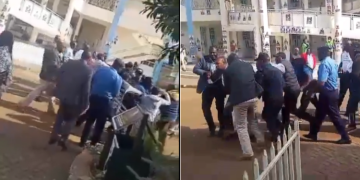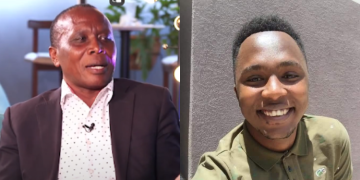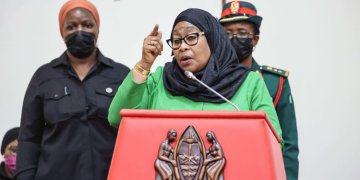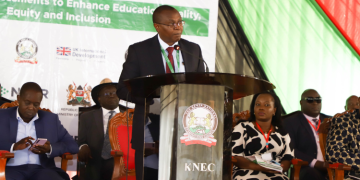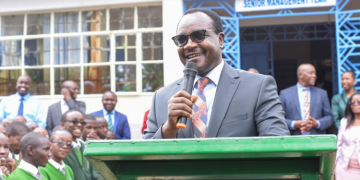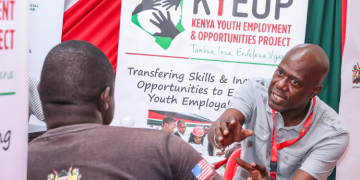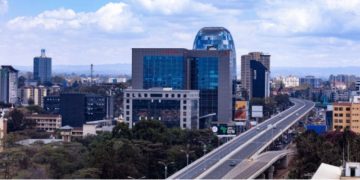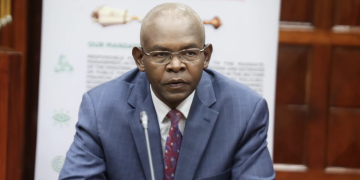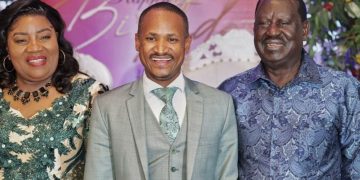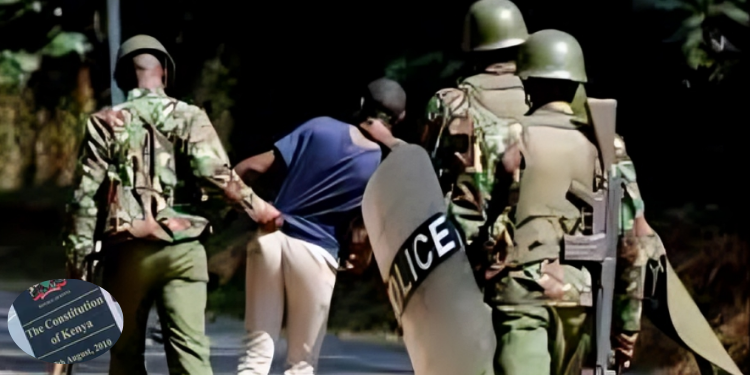The conduct of police officers in Kenya is under sharp scruitny especially following the brutal murder of Albert Ojwang who died in the hands of law enforcement officers. Lawyer Wahome Thuku has outlined five critical behaviors he believes must end for the sake of professionalism, accountability, and officers’ own legal protection.
In a statement on June 11, Thuku, known for his outspoken views on governance and justice, warned that these common but often unchecked habits within the force not only undermine public trust, but also leave officers vulnerable when the tables turn.
His message comes amid the growing public concern over police conduct in Kenya.
Wahome Thuku to Junior Police Officers
Thuku criticized the common practice of telling suspects “utajua mbele” loosely translated as “you’ll find out later” when arresting individuals without explaining the charges against them.
He noted that while the tactic may temporarily boost an officer’s ego, it creates a flawed process that rarely ends well.
Also Read: Parliament Mourns Death of Top Official Who Rose from a School Teacher
“When you arrest a person and don’t disclose the reasons in detail to him, you feel very important and powerful. But when tables turn, you want the person to be the one to save yourself. Can’t happen. You started it wrongly; you end it wrongly,” he stated.
Stop Hiding Where You’re Taking Suspects
Thuku also took issue with officers who deliberately keep families in the dark about where a suspect is being taken.
He accused such officers of misusing their positions to exert unnecessary power, saying transparency would be far more effective.
“You feel too good doing the wrong thing. Until it hits home and you start explaining to the public… ‘Oh, I wasn’t there when he was taken to Karura.’ ‘Oh, I only dropped him at the gate of Central.’ Why not just tell the family, ‘Come to Central, that’s where we’re going’?” he added.
End the Unnecessary Drama, Just Make the Call
Recounting a personal experience, Thuku described how police once attempted to arrest him by tracking down his wife at her workplace instead of simply calling him.
He questioned the need for such theatrical and invasive measures, noting that they only cause confusion and unnecessary conflict.
“Before finding me, they had gone to my wife’s workplace to ask her how to trace me. It became a security issue at her work. Why all the drama? I&M to Parliament is just 500 meters. Why couldn’t you just call me, and I would have come immediately?” he further wrote.
Also Read: Man Who Confronted Armed Police Officers with a Panga Arrested
Always Record Arrests in the OB
Wahome Thuku called out the illegal practice of arresting suspects without entering their details into the Occurrence Book (OB), an essential legal document.
He warned that such omissions often come back to haunt the officers involved, especially when cases reach court.
“When we ask for the OB in court, an extract is quickly forged by the Investigating Officer and brought in. And the court can’t verify it since it’s kept by the OCS. When things go wrong, the OB sells you out immediately. You try explaining and end up sounding like a broken record,” Thuku said.
Accept the Use of Body Cameras
He further criticized the reluctance among many officers to adopt body cameras, viewing the resistance as an effort to shield misconduct.
He urged police to consider the benefits of such technology, especially in cases where innocent officers are falsely accused.
“You always oppose the use of body cams because you believe they’ll hinder your monkey business. But now think about the innocent officers at Central Police Station who have nothing to convince their accusers they are innocent. If they had body cameras…”
Wahome Thuku’s remarks come amid ongoing national discussions about police accountability and reform.
Follow our WhatsApp Channel and join our WhatsApp Group for real-time news updates.


